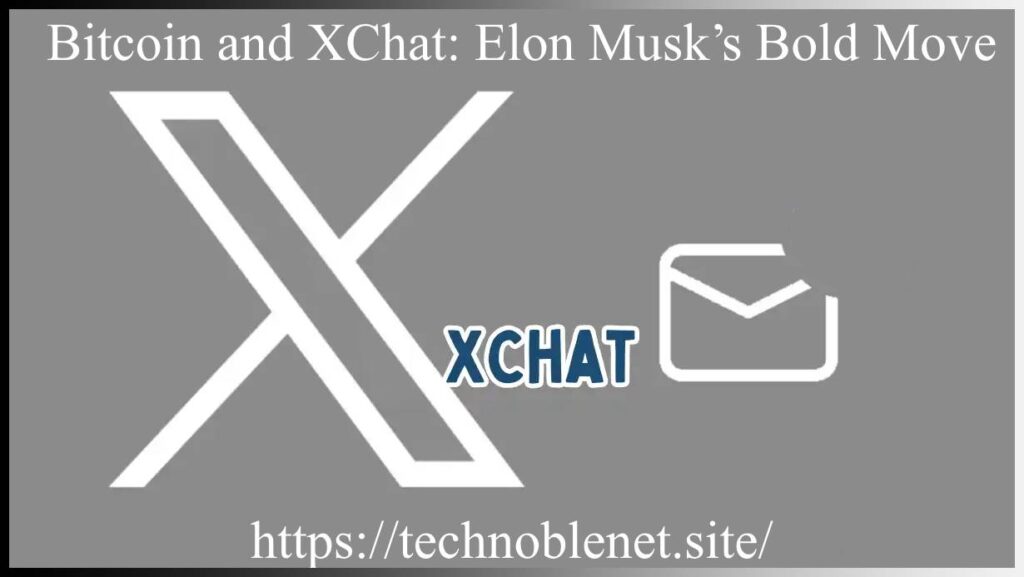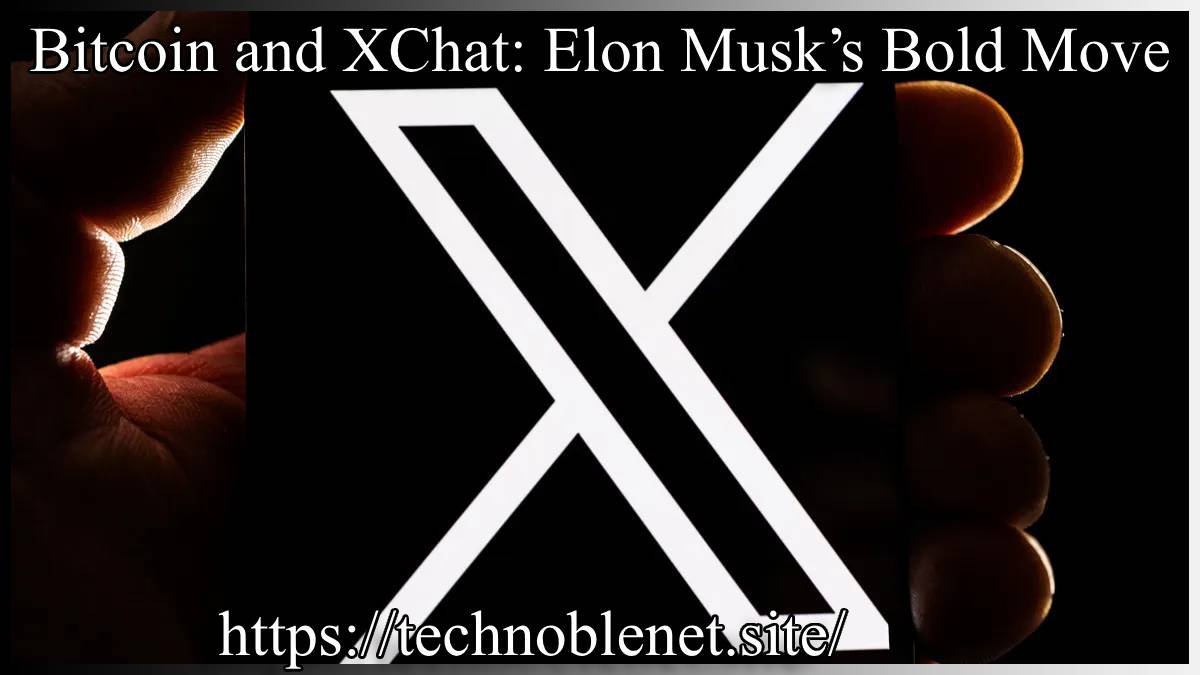Discover Elon Musk’s new XChat app—an end-to-end encrypted messaging platform built with Rust, offering secure communication without requiring phone numbers. Explore features, benefits, comparisons, and expert opinions in this in-depth 2025 guide.
Elon Musk’s unveiling of XChat marks a pivotal moment in the evolution of digital communication. Integrated within the broader X platform (formerly Twitter), XChat aims to deliver advanced messaging capabilities while enhancing user privacy and functionality. Its introduction not only captures attention because of Musk’s involvement but also because of the feature set and ambition behind it. In this article, we will explore what makes XChat different, what features it offers, and how it compares to existing platforms like WhatsApp, Telegram, and Signal.
Table of Contents
What Is XChat?
XChat is a newly launched encrypted messaging service developed by Elon Musk’s team at X (formerly Twitter). Designed to integrate seamlessly with the X ecosystem, XChat enables users to exchange text, make voice and video calls, and share files—all while emphasizing privacy and security. The platform is currently in beta and is being gradually rolled out to a select group of users, particularly those who are paid subscribers to X.
The Technology Behind XChat: Elon Musk
One of the most notable technical aspects of XChat is its use of the Rust programming language. Rust is known for offering strong memory safety features and performance efficiency, making it an excellent choice for building secure and robust applications. Rust has gained popularity in recent years for being the language of choice for system-level applications where security and performance are non-negotiable.
But what really caught headlines was Elon Musk’s claim that XChat features “Bitcoin-style encryption.” Though this phrase remains somewhat vague, it is believed to reference encryption standards akin to those used in the Bitcoin blockchain. Bitcoin’s architecture is known for its peer-to-peer, decentralized, and cryptographically secure design. If implemented similarly, XChat could be a game-changer for encrypted communication.
Some experts believe Musk might be alluding to something like BIP-151, a Bitcoin Improvement Proposal designed to encrypt peer-to-peer messages between nodes. While not fully verified, such a protocol would add another layer of trustless and decentralized communication to the platform.

Features of XChat
XChat is designed to be feature-rich and user-friendly, incorporating several functions that cater to both casual and privacy-focused users. Below are some of the standout features:
1. End-to-End Encryption
The most important promise made by XChat is end-to-end encryption, which means that only the communicating users can read the messages. Even the platform itself cannot decrypt the data, ensuring true user privacy.
2. Disappearing Messages
XChat offers the option for disappearing messages, a feature that has become popular among privacy-focused apps. Messages can be set to delete themselves after a specified time, reducing the chances of data being retrieved or exposed later.
3. Voice and Video Calling
One of XChat’s competitive features is the ability to make voice and video calls without needing a phone number. This is a significant advantage over WhatsApp and Telegram, which both require phone numbers for user verification.
4. Cross-Platform Access
XChat supports multiple platforms including Android, iOS, and web, making it accessible and flexible for all users. This wide range of compatibility ensures that users can stay connected regardless of the device they use.
5. File Sharing
The app also includes secure file sharing capabilities. Users can send documents, images, videos, and other file types with the confidence that their data is protected.
6. 4-Digit Passcode for Extra Security
To prevent unauthorized access, XChat includes a 4-digit passcode lock. This feature adds another layer of protection, ensuring that even if someone gains access to your phone, they still can’t open the chat app without the code.
XChat and the “Everything App” Vision
Elon Musk has long talked about turning X into an “everything app,” similar to WeChat in China. This vision includes not just social networking and messaging, but also financial transactions, online shopping, and potentially even job boards or transportation services.
XChat is a significant step toward realizing this vision. It’s not just a standalone messaging app; it’s meant to be an integral part of a larger, unified platform that combines:
- Communication
- Financial transactions (via upcoming XMoney feature)
- Social media
- Marketplace functionality
XChat could potentially be the messaging foundation that supports broader initiatives such as peer-to-peer payments, business communication, and decentralized social networking.
How XChat Compares to Other Messaging Apps
To better understand the significance of XChat, it’s helpful to compare it to its major competitors:
- Pros: End-to-end encryption, massive user base, easy-to-use interface.
- Cons: Requires a phone number, owned by Meta which has a mixed reputation regarding data privacy.
Telegram
- Pros: Supports large group chats, bots, cloud-based chat history.
- Cons: End-to-end encryption only available in “Secret Chats,” not by default.
Signal
- Pros: Open-source, default end-to-end encryption, highly secure.
- Cons: Fewer features compared to competitors, smaller user base.
XChat
- Pros: End-to-end encryption, no phone number required, built on secure Rust language, part of a larger ecosystem.
- Cons: Still in beta, limited availability, vague encryption claims need clarification.

Security Concerns and Expert Opinions
While XChat has certainly made a splash, not everyone is immediately convinced. The term “Bitcoin-style encryption” has drawn criticism for being unclear and potentially misleading. Encryption in Bitcoin refers more to cryptographic signing and hashing rather than traditional message encryption protocols.
Security experts have pointed out that the lack of detailed technical documentation or independent audits means users should be cautious. A secure app needs to be transparent in its methods, open to third-party verification, and clear in its security protocols.
Additionally, Musk’s track record with making big announcements sometimes overshadows the slower pace of actual implementation. As of now, XChat is still in beta and not available to the general public.
User Experience and Early Feedback:Elon Musk’s
Initial users who have accessed the beta version have reported a generally positive experience. The interface is sleek and minimalistic, following the design trends of the X platform. The app is fast and responsive, and the ability to make audio/video calls without linking a phone number is a standout feature.
However, some users have noted that the lack of clarity around data handling and encryption protocols could be a red flag. Others have expressed excitement about the app’s potential to consolidate different aspects of their digital life into a single, secure platform.
Challenges Ahead
Despite its promise, XChat faces several challenges:
- Building User Trust: Without transparency and audits, the platform may struggle to convince privacy advocates.
- Competing with Established Apps: WhatsApp and Telegram dominate the market, and convincing users to switch will require more than a famous name.
- Regulatory Hurdles: As XChat grows and integrates financial features, it may face regulatory scrutiny in various countries.
- Content Moderation: Like other messaging platforms, XChat will need to address issues around misinformation, abuse, and illegal activity.
The Future of XChat
Elon Musk is no stranger to ambitious projects—from SpaceX to Tesla to Neuralink—and XChat appears to be another attempt to disrupt a well-established industry. If executed well, it could:
- Revolutionize communication by merging it with finance and social media
- Challenge centralized data models by implementing decentralized or user-controlled data storage
- Provide a truly secure messaging alternative for users concerned about privacy
However, success will depend on how well the platform can deliver on its promises, scale its services, and earn user trust through transparency.
Final Thoughts
XChat represents more than just another messaging app—it’s a part of Elon Musk’s grander vision for the future of the internet. With built-in end-to-end encryption, disappearing messages, cross-platform access, and no phone number requirement, it offers a fresh take on secure digital communication.
But questions remain. How secure is the encryption really? Will users adopt it widely? Can it effectively compete with giants like WhatsApp and Telegram?
If these questions are answered positively, XChat could well be the foundation of the next-generation “everything app,” merging communication, commerce, and connectivity into a single platform.
